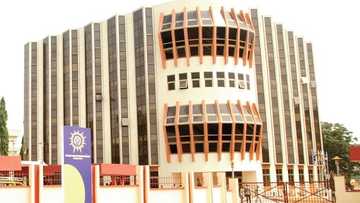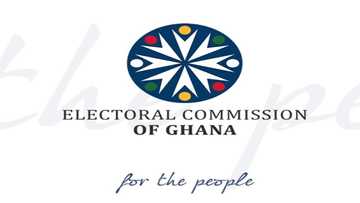Hierarchy of courts in Ghana
In analysing the hierarchy of courts in Ghana and their operations, they can be compared to that of the British Common Law system. The system is said to be built on a foundation which Ghana acquired from the common law of the Anglo-Saxon, statutory law and other documents. Since the independence of the country in 1957, the courts have been operating in a way that grants the citizens the opportunity to take part in the administration of justice. This has been possible through the operations of public and customary tribunals, among others, as spelt out in Article 125 (2) of the constitution of the Republic of Ghana. In this article, we take a look at the hierarchy of these Ghanaian courts and also discuss the operations of each of them.

Source: UGC
Basically, the operations of the courts of the Republic of Ghana are adversarial in nature. This adversarial system gives the opposing sides the opportunity to compete in convincing the judge and jury based on the facts they present. In this situation, the Judge or Magistrate operates independently and is expected to deliver his judgement after hearing out each of the parties.
Levels of courts in Ghana
There are mainly two levels or categories of courts in Ghana. These categories are based on the legal procedures of Britain. The court levels are:
- The Superior Courts of Judicature: Under this division are the Supreme Court, the Court of Appeal, the High Court and the Regional Tribunal.
- The Lower Courts: The Lower Courts consist of the Circuit Court, District Court and Judicial Committee of the National House of Chiefs. Another court under this level is a Judicial Committee of the Regional House of Chiefs. Then, other lower courts that may be established by law through the Parliament would come under this category.
The difference between these levels of courts is that while the Superior Courts were created by the constitution, the Lower Courts came from the Courts Act.
Types of law courts in Ghana
Under the Ghanaian judicial system, there are mainly five types of courts in Ghana. They are listed below based on their hierarchy:

Read also
Akufo-Addo openly supports calls for constitution to be reviewed; urges Ghanaians to do same
- The Supreme Court
- The Court of Appeal
- The High Court
- The Circuit Court
- The District Court
Every other court in Ghana is grouped under the courts listed above. So, let us take a look at each of these courts.
READ ALSO: Fundamental human rights in Ghana and institutions to report violations
Supreme Court of Ghana
The Supreme Court is the highest court in the country and it is under the leadership of the Chief Justice. There are not less than nine justices who work with the Chief Justice and five constituted panel of judges. Seen as the last court where anyone can make an appeal, the Court has its jurisdiction in terms of how it enforces or interprets the constitutional law.
The Court has a supervisory jurisdiction over all the other courts that exist in Ghana. As a result, it can decide whether the law enacted by a lower court was made as a result of the excess power available to the Parliament or other authorities that are subject to the constitution.
Constitutionally, the Chief Justice presides over all sittings of the Supreme Court. In the appointment of any Chief Justice in Ghana, the President consults the Council of State to determine who is fit. After this is settled, he then goes ahead to get the approval of the Parliament. It is after this process that the Chief Justice is determined.
Functions of the Supreme Court in Ghana
Specifically, the functions of the Supreme Court are listed below:
- It is the only court with the right to hear appeals that may come from the National House of Chiefs.
- It ensures that there is fairness and consistency in the application of the law. It also makes sure that justice is upheld in the country so that no one is deprived of justice in any court of law.
- The Supreme Court is considered as the final appellate court of the country. This is because based on the constitutional right vested in it, appeals of a trial court can be considered there.
- The Court also reserves the right to interpret the constitution. As a result of this, it is expected that whatever interpretation it gives must be accepted and respected by everyone.
- In situations where questions about the law are raised, the Supreme Court has the advisory jurisdiction of expressing the final opinion on the matter.
The Court of Appeal
The next in the hierarchy of courts in Ghana is the Court of Appeal. Just as the name implies, the Court has the jurisdiction under the constitution to hear and decide appeals from any judgement or order that is made by the High Court or any of the Regional Tribunals. In terms of composition, the Court consists of a Chief Justice and, at least, 10 other Justices.
According to the constitution, every lower court is expected to follow whatever decision is made by the Court of Appeal on any issue that relates to the law. This is in accordance with article 136 (5) of the constitution of the Republic of Ghana.

Source: UGC
The High Court
The High Court is composed of a Chief Justice and not less than twenty Justices. The jurisdiction of the Court involves hearing all civil or criminal matters. It has the constitutional right to hear appeals from the District Court as well as criminal appeals that may come from the Circuit Court. More so, based on the Fundamental Human Rights and Freedom spelt out in the 1992 Constitution of the country, the Court has the exclusive jurisdiction to enforce them. Thus, it plays a supervisory jurisdiction over all the lower courts and other inferior judicial bodies that are based in the country.
Names of High Courts in Ghana
To help promote specialisation, the High Court has a number of divisions. The essence of these divisions is to help members of the public to determine where exactly to go based on their issues of concern. At the moment, there are many High Courts that operate in various locations in Ghana. The names of these High Courts are listed below:
- Fast Track Court
- Commercial Court
- Labour Court
- Human Rights Court
- Land Court
- Economic and Financial Crimes Court
- Family Court
- Probate and Administration
The Circuit Court
Although being a part of the lower courts, the Circuit Court has a jurisdiction over both criminal and civil cases. The Court is headed by a Circuit Judge. The Court has jurisdiction over any civil case such as ownership and title to land disputes, that may arise between a landlord and a tenant and title to land. It also has jurisdiction over matters that involve the custody of children. It can also hear out criminal matters that do not have anything to do with treason or offences punishable by death. Some of the criminal matters include cases like defilement and assault.
When there are civil cases like matrimonial and adoption of children issues, the Court can hear them. But then, if an appeal on a civil case arises from the Circuit Court, it can be addressed by the Court of Appeal while appeals from criminal cases are handled by the High Court.
READ ALSO: Law school candidates unhappy with examinations and call for cancellation
The District Court
The District Court takes the largest share of the total number of courts that are in Ghana. Every district within the country has not less than one District Court. These District Courts are usually set up by the Chief Justice and they have the jurisdiction to hear out criminal and civil cases. Every District Court is headed by a Magistrate who is expected to be of proven character.
The Court can hear out matters that relate to divorce and matrimonial issues. It can preside over issues that deal with ownership, possession or occupation of land between a landlord and a tenant. But then, the Court's jurisdiction only covers landed properties that do not exceed GHC 10,000,000.
District Courts in Ghana
The following are some of the District Courts that are based in Ghana.
- Motor Court
- Family Court
- The Juvenile Court.
With the hierarchy of courts in Ghana, the judicial system of the country is able to operate within their jurisdiction. An understanding of this hierarchy helps citizens flow well with judicial operations. By this, citizens are able to follow a due process in filing their cases and seeking redress of judgements that have been passed, which they think are faulty.
Source: YEN.com.gh







